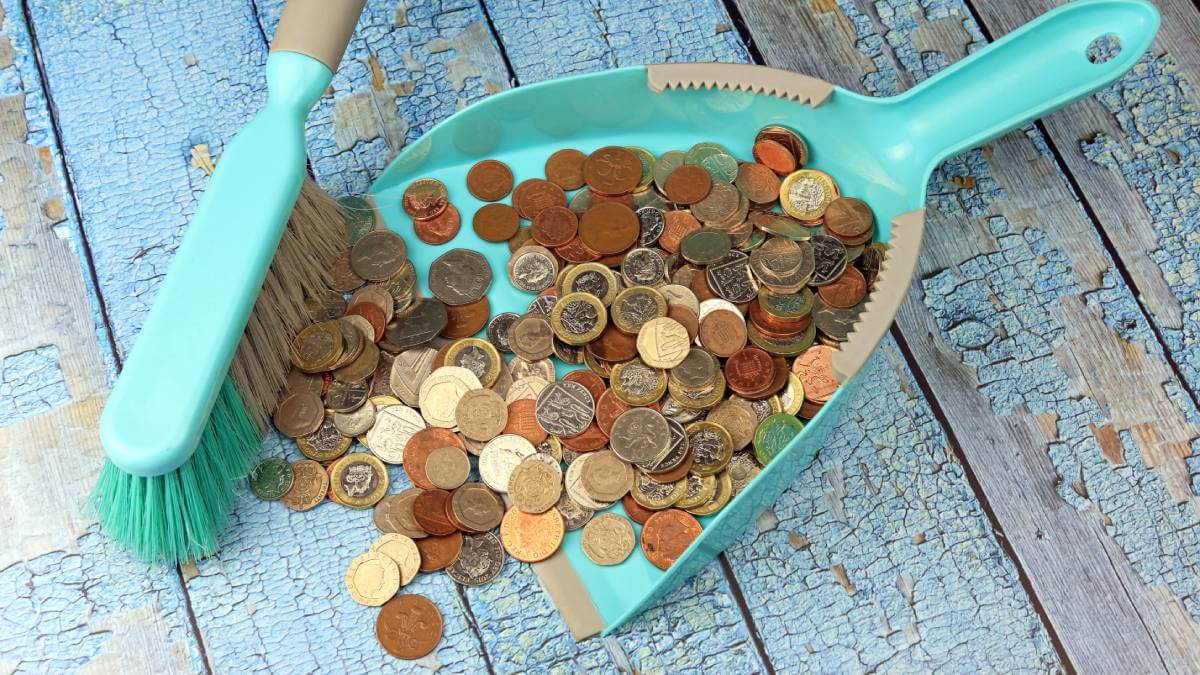Everywhere you look there is advice about how to declutter your life.
You can do the Marie Kondo method, the Swedish death cleaning method or the four-box method.
And that’s fine for your household stuff, but what about your finances?
Let’s face it, you probably have subscriptions you don’t need, debts you could dispense with and a budget that was set a few years ago. You are probably drowning in a level of complexity that nobody needs.
So maybe it’s time to declutter to become a lean, mean financial machine.
Here are some simple steps to get you on your way.
Cancel culture
Do you have streaming services you are no longer in love with? Are there a few lazy software subscriptions floating around on your monthly credit card statement? Or maybe even a wine club ‘dozen of the month’ you could get cheaper at the local?
Go through your bank statements and cull those you no longer need.
This may take fortitude because they do not make it easy for you. You may have to hunt down a button on an obscure page of the website. It will be worth it. You are stronger than them.
One debt to rule them all
One of Marie Kondo’s key tips is to gather everything in one category into a pile.
You should do the same, but with your debt.
If you have several credit cards, a car loan, or a mortgage it’s a good idea to put them all into one loan. Negotiate with your bank to fold it into your mortgage or even open a personal loan. The interest will almost always be less than a credit card and you will only be paying one set of administration fees instead of several.
And while you are at it, only use one credit card. All those store cards are just adding up in administration fees. Chop the rest up, you’ll enjoy it.
If you are visiting your bank, most offer a free financial advice service.
Better budget
Has it been a while since you have reviewed your budget? Do you even have a budget? Naughty if you don’t.
Life moves pretty quickly, and if you are not reviewing your budget every couple of years you may be falling behind.
Time to re-examine how you divide up your cash and where you should be investing.
It doesn’t have to cost a cent either. There are plenty of online tools, and MoneySmart is always a good place to start.
And don’t forget to check your online bank statement. Plenty of banks these days will generate a graphic or record of where you have been spending.
Mine has a pie chart that always puts a terrifying amount of my money spent on groceries, but I guess that’s everyone these days.
Go online
Are you still receiving physical, paper bills? It’s easy to set up paperless billing and statements these days.
Take it to the next level with direct debit for some of your accounts. It’s always still a good idea to check the bills when they do come in though. We had a water bill that was, frankly, not even possible and spent several weeks sorting it out. So, don’t set and forget.
And try out downloading your bank’s app. It can be an easy way to check payments and pay bills on the go.
Get advice
Unless you are some sort of financial superstar, you probably don’t have all the knowledge you need to maximise your financial position.
Yes, getting financial advice costs money, but it can make you money in the long term.
There are two types of advice: general and personal. General offers education about financial products, processes, and guidelines.
Personal advice takes into account your specific circumstances, financial needs and goals for the future. Always make sure they are registered, and you can check here if they are.
Advisers generally charge a fee or ongoing fees, but there are some free resources including:
Mortgage brokers: if you are looking for a loan a mortgage broker will be able to advise you on how much you can borrow and the best provider for your goal. However, be aware most mortgage brokers only have arrangements with some loan providers and not all. Ask up-front who they deal with before going ahead.
Super fund: some super funds offer basic advice on how to increase your balance. For more comprehensive advice you generally have to pay a fee.
Unions: many unions offer free financial advice in many different forms from online seminars to one-on-one sessions from everything from super to insurance. Check with your union or visit Australian Unions for what’s available.
Banks: most offer financial advice. Generally, they think it’s a good idea to borrow more money from them, but they may be able to put your savings at a better rate of interest or provide a more tailored product for your needs and goals. Many also offer cheap stockbroking services.
When was the last time you seriously looked at your finances? Have you already put to work any of these tips? Why not share your experience in the comments section below?
Also read: How to beat the upcoming July energy price hike
Disclaimer: All content on YourLifeChoices website is of a general nature and has been prepared without taking into account your objectives, financial situation or needs. It has been prepared with due care but no guarantees are provided for the ongoing accuracy or relevance. Before making a decision based on this information, you should consider its appropriateness in regard to your own circumstances. You should seek professional advice from a financial planner, lawyer or tax agent in relation to any aspects that affect your financial and legal circumstances.

